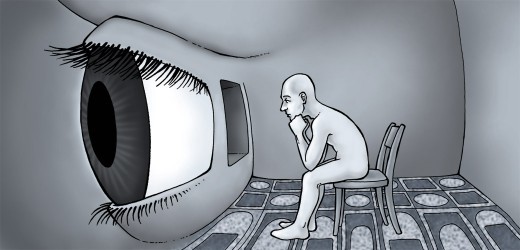
Panic disorder
I am Rakshpal Sharma, a 32-year-old engineer working with a leading spare parts company. As my company has its sales all over Gujarat, I am required to make frequent journeys, about 12 days in a month. Since the last 3 years, I have frequent anxiety attacks while I am traveling. There is an intense sense of foreboding and a raw fear that something terrible is about to happen. I feel as if I might die the next second. I am too afraid to get on the bus or the train. I often stand on the platform with my heart pounding, barely able to breathe. I am just freaking out and I feel like my body is freaking out. I mean the shaking and the breathing and the sweats, and the heart and the pain in the chest – I feel like I am going to have a heart attack or something. Other passengers file past me, looking back over their shoulders to see if something is wrong. I have gone to many physicians but they just tell me it is nothing, or over exertion. It has got to the point, where I am unable to travel frequently and it is affecting my work. I have considered leaving my job and sitting at home, but I cannot afford to do that also. One month back, my physician advised me to consult a psychiatrist. Please advise.
What is happening to you, Rakshpal, that “something” happens regularly to one in fifty people and is called a panic attack, the crisis phase of panic disorder. The crushing fear of the panic attack most often passes after a few minutes, but in its wake it leaves a residue of uneasiness: when might the panic come again? Everyone has anxious times. Modern life, with its pace, its pressures to perform and produce, and its difficult relationships, seems at times almost to be a factory for stress. However, the normal life’s normal strains are not the stuff of panic disorder. The panic attacks stemming from the illness often strike in familiar places where there is seemingly “nothing to be afraid of.” However, when the attack comes, it comes as if there were a real threat, and the body reacts accordingly. Surroundings can take on an unreal cast, and a combination of symptoms sparks like the current in a cross wired fire alarm: the heart races, breathing gets shallower and faster, the whole nervous system signals: DANGER. You may be convinced he or she is having a heart attack or stroke, or that he or she is going crazy or going to die. There is sweating, shortness of breath, heart palpitations, chest discomfort, unsteady feelings, choking or smothering sensations, tingling, hot or cold flashes, faintness, trembling, nausea or abdominal distress, feelings of unreality, fears of losing control, dying, or going insane. Consequently, many people end up with doctors and this embarrassing process may repeat itself many times. In the first attack, as it begins to ebb, you may be tempted to believe it was a fluke. The electrocardiogram may show nothing untoward; the jagged emotions seem like a dim memory until the next time. When the next attack comes, you begin to search for a cause. You may avoid situations or places where the episode has occurred. You may become reclusive, reasoning that it is better to suffer alone than endure the attacks in the open where there is no escape from the fear and humiliation and little chances of help. This is called as phobic avoidance. It may help temporarily with the fear of the attack and its accompanying loss of control, but it makes a normal home and work life nearly impossible. It steals the savor from life. In addition, it does not keep the attacks from happening. Fear of the fear the attacks bring, or anticipatory anxiety, can be one unfortunate outgrowth. You never know when another attack will come, and are always steeled for it. This confines your lifestyle, putting strain on relations with friends and family. You can easily become prey to depression and its complications. Self-medication with alcohol and drugs is sadly ironic; they can themselves pull down mood and worsen anxiety, condemning you to a downward spiral of anxiety, depression and more panic. However, the thing that is most distressing and frightening is just not knowing what is wrong with you. Panic disorder has been called one of the greatest impostors among illness because it is so easily mistaken for other medical or psychiatric problems and many physicians can be confused by the symptoms, order a plethora of tests and end up with nothing significant. You may trudge from doctor to doctor seeking help, and may even give up hope of a cure, doubting your and the doctor’s sanity. There are three main treatment programs advocated by psychiatry – medication, cognitive and behavioral treatment. Benzodiazepines like alprazolam and clonazepam, antidepressants like imipramine, sertraline and paroxetine work well for panic disorder. The cognitive and behavioral elements deal with education about your illness and encouragement to reenter the situations to which you have become phobic. Desensitization techniques, relaxation exercise and breathing techniques are used to modify fearful thoughts and avoid panic attacks. In-depth psychotherapy can help you to deal with the long-term consequences of your illness. In this way, you may be able to tackle the problem of panic. 90 % of panic disorder patients improve with a combination of medications, psychotherapy and behavior treatment.



